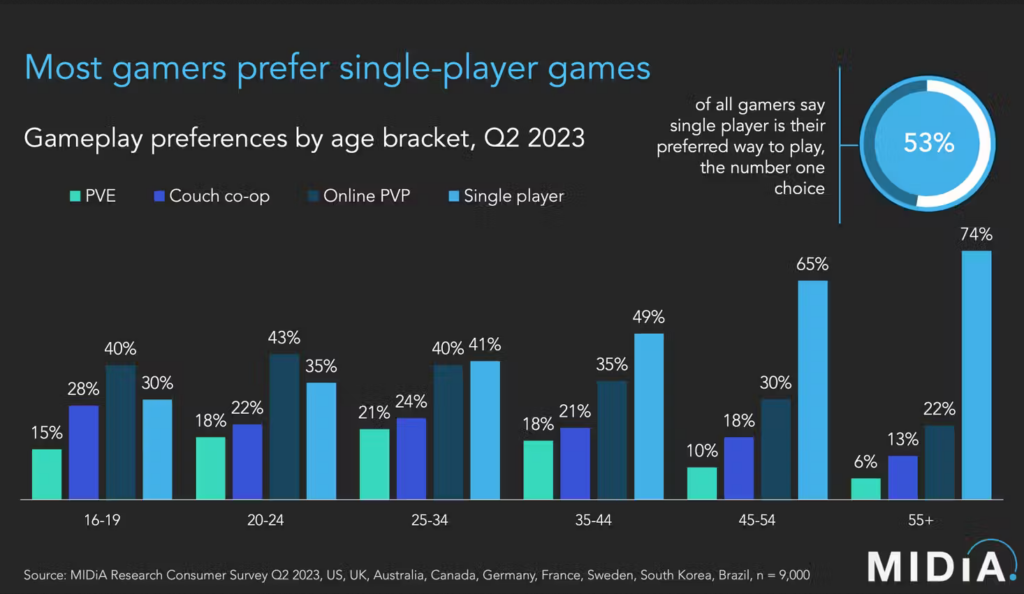Study Reveals Single-Player Games Remain a Top Choice Among Gamers
A recent survey by Midia Research indicates that 53% of gamers still prefer single-player games over multiplayer titles. While this may come as no surprise to seasoned gamers, it’s worth noting...
A recent survey by Midia Research indicates that 53% of gamers still prefer single-player games over multiplayer titles. While this may come as no surprise to seasoned gamers, it’s worth noting that the gaming industry has seen a major shift toward multiplayer experiences, largely due to their social appeal and the significant commercial potential they offer through live-service models.
The rising popularity of live-service multiplayer games has made it increasingly challenging for companies to invest in single-player experiences. Multiplayer games often generate a steady stream of revenue, with successful titles like Fortnite leading the charge, earning remarkable profits. However, even though live-service games can be more financially lucrative, it doesn’t necessarily mean they are the preferred choice for most players.

Midia Research’s survey, conducted in Q1 2023 and Q1 2024 across regions including the US, UK, Australia, Canada, Germany, France, Poland, Turkey, and South Africa, found that a majority of respondents favored single-player games. Popular examples like The Legend of Zelda: Tears of the Kingdom and the newly released Black Myth: Wukong highlight the continued demand for immersive solo gaming experiences.
While titles like Fortnite and Roblox have set a high bar for multiplayer games, Midia’s report argues that not every game studio should chase this trend. Describing it as “a zero-sum game,” the report cautions against blindly pursuing the success of these live-service models. Examples like Anthem and Babylon’s Fall serve as reminders of the potential downsides, with these titles failing to achieve the audience size or profitability expected despite significant investments.
The report also addresses the “opportunity cost” faced by companies that focus on replicating the success of live-service games. It emphasizes that the gaming market is highly competitive and unpredictable, making it risky to invest heavily in an already crowded space. Even single-player games with dedicated fan bases, like Star Wars Outlaws and Final Fantasy 7 Rebirth, have faced sales challenges, proving that no game genre is guaranteed to be a hit.
Despite the growing pressure to develop multiplayer experiences, the preference for single-player games among many gamers remains strong, reaffirming their place in the gaming landscape.










